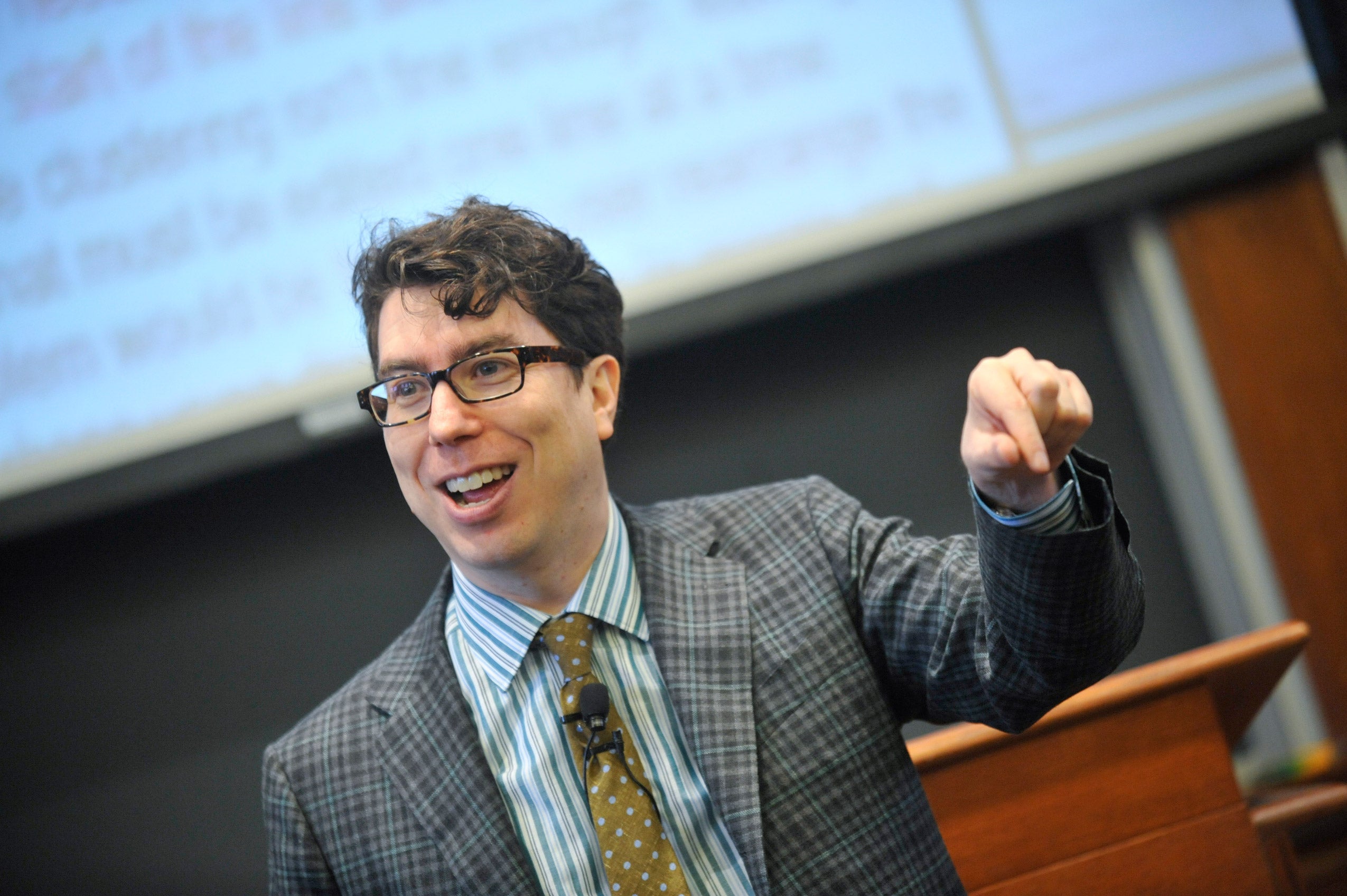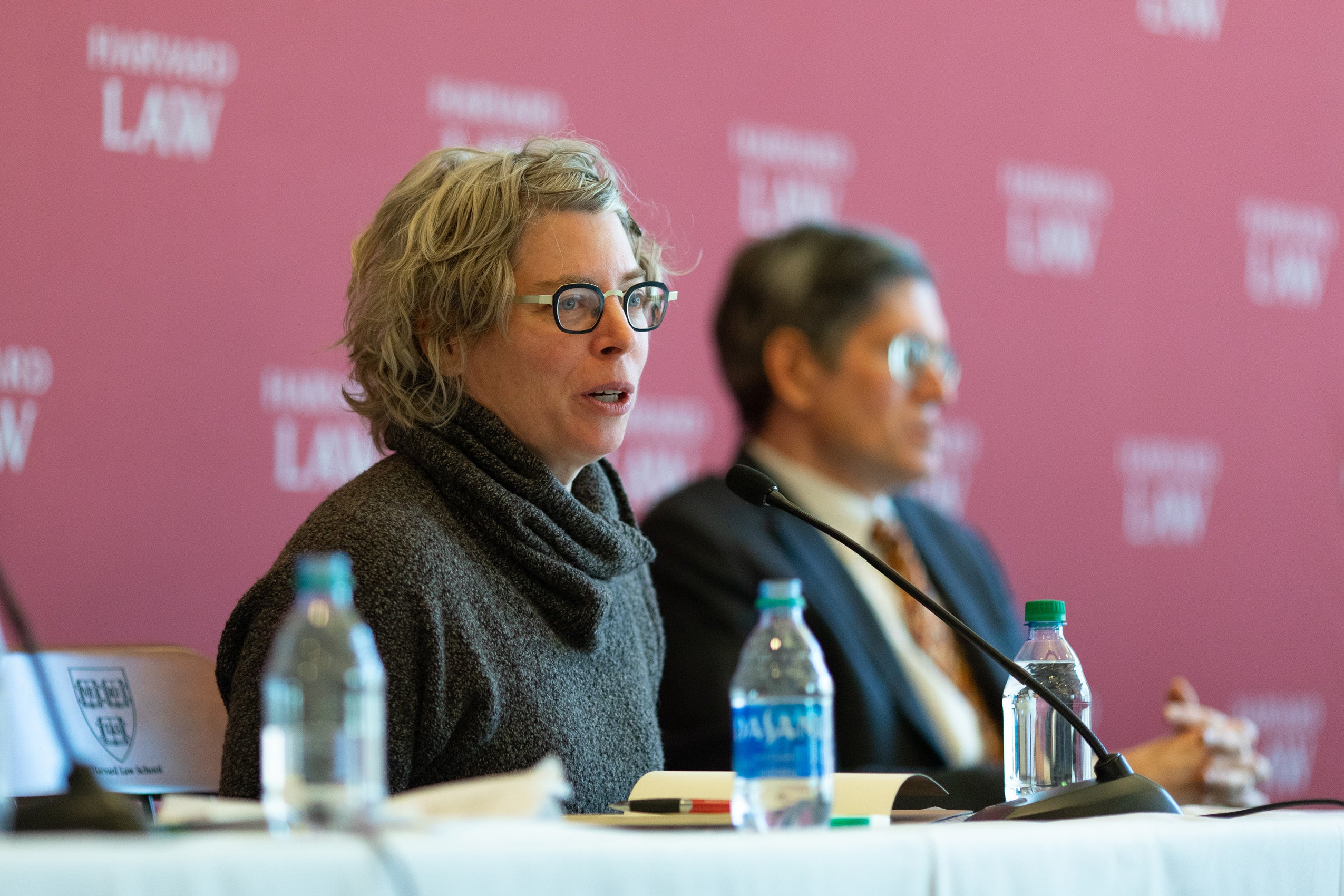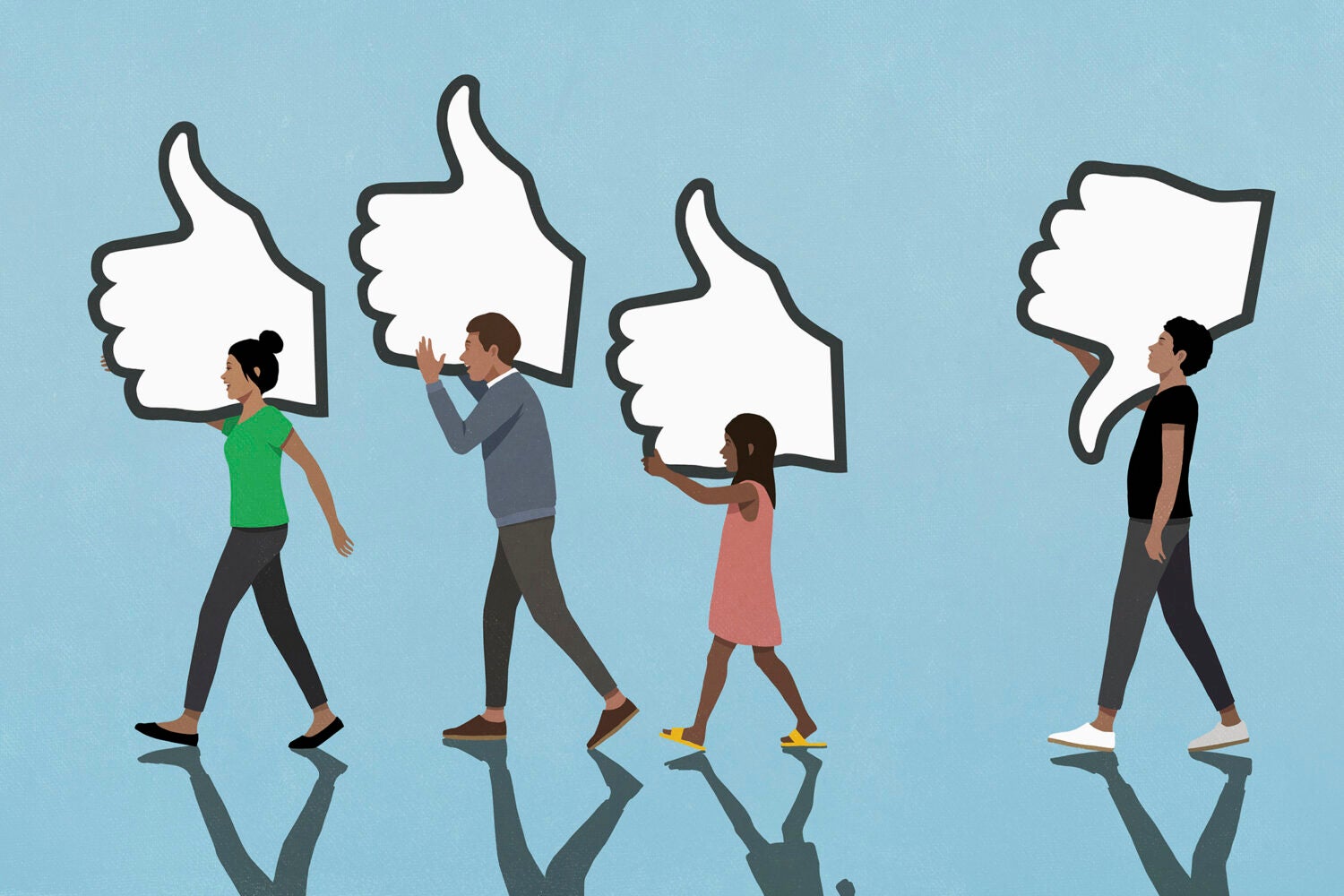Can you believe advertisements, or anything else for that matter, you read on the internet?
The question and its possible answers are among the greatest conundrums of the information age, with implications for the economy, free speech, and democracy. But for internet expert Jonathan Zittrain ’95, the solution may be as simple as high school homework.
Social media sites like Facebook, he says, offer up an intoxicating mélange of lies and truth driven by microtargeted advertising and an algorithm that favors confrontation and fear. Many experts and lawmakers believe that more aggressive content moderation could bend the curve on the fact to fiction ratio. Facebook could, for instance, ban political ads they find to be replete with false information.
But Zittrain, co-founder of the Berkman Klein Center for Internet and Society and Harvard’s George Bemis Professor of International Law, says content moderation isn’t as easy as it might seem. First, he notes, Facebook (along with its parent company Meta) is a private corporation that is “in the ad-selling business, not the truth-finding business.” Regulating truth is just not an essential part of Facebook’s revenue model.

And even if Facebook decided to ban false information from its platform, who decides what makes the cut? “You don’t want the government vetting the ads because the government often has officials who are participating as candidates in the election,” said Zittrain. In addition, deciding what is true or false can be tricky, with shades of gray that call for interpretation. “That rightly touches on a bunch of First Amendment [issues], as well it should.”
But if we can trust neither Facebook nor the government to do it, who should? Zittrain wants to try out an answer.
He has proposed enlisting high school students across the country as “advertisement juries,” an idea he first described in a 2019 Atlantic article, “A Jury of Random People Can Do Wonders for Facebook.”
“What is a group that the public might trust to at least be earnest about trying to get to the truth?” asked Zittrain. A group that “even if we thought they got it wrong, wouldn’t cause us to repudiate the whole exercise?” He believes that “having the high school students act as juries under the guidance of their teachers and librarians and for actual credit in their classroom” meets those criteria.
This past year, Jill Lepore, David Woods Kemper ’41 Professor of American History at Harvard, who also teaches classes at Harvard Law School, tried out Zittrain’s idea, which she calls “trial by teenager.” In a two-part episode of her podcast The Last Archive, Lepore documented the discussions high school history students at schools in Massachusetts, New Hampshire, and Vermont held as they adjudicated whether certain political ads were true enough to be posted to social media.
“It’s a very exciting idea,” said Lepore. “Public high schools are not communities of like-minded people. They are much more akin to a jury of random people selected for jury service. And to correct for the possibility that the community from which the student population of a public high school is drawn is itself a like-minded community, the experiment as we conducted it involved bringing together students from two high schools in two different states.
“I think the students handled nuance exceptionally well,” said the historian. “In the Vermont/New Hampshire experiment, students charged with evaluating four different ads came up with four different verdicts. I found the students to be eminently fair-minded and responsible. I trust them a lot more than I trust any other mechanism currently being used to assess the accuracy of political ads on social media.”
“I found the students to be eminently fair-minded and responsible. I trust them a lot more than I trust any other mechanism currently being used to assess the accuracy of political ads on social media.”
In a world where “likes” and “clicks” command power, the novelty of this idea could add to its traction, suggested Zittrain. “There’s a real question mark around how powerful professional online fact-checking is and should be. However, if it’s a question of ‘learn what the students in Racine, Wisconsin, thought about the ad you just saw,’ that might be more interesting. That’s almost like a reality show.”
The proposal has another advantage: “It’s hard for foreign state actors bent on propaganda to show up in classrooms.”
Ideally, said Zittrain, social media companies like Meta would see that it was in their best interest to financially support such independent ventures, at an appropriate distance — and to abide by the student decisions. “They could point to the process and say, ‘the teens have spoken.’”
Students, he noted, would pursue the juries as they do activities like debate club or model U.N., although this would be even more exciting, he pointed out, because “it’s a live-fire exercise.”

For now, the “trial-by-teenager” idea is one of many from approximately 20 visiting scholars and fellows being explored by the Berkman Center’s new three-year research initiative The Institute for Rebooting Social Media.
“In this pivotal moment for social media, we think it imperative to center research and initiatives that critically analyze the status quo but also reimagine the current landscape, suggesting new interfaces, innovative protocols, and novel ideas,” said Institute program manager Toni Gardner.
Even if trial-by-teenager does not become the industry standard, Zittrain says it might have other benefits. “It also just might be that the kids come home and then the dinner table conversation is around that ad and what the kids learned,” said Zittrain. That would give the trials a different kind of social force: “Maybe the parents would be curious why the kids have the views they do.”
